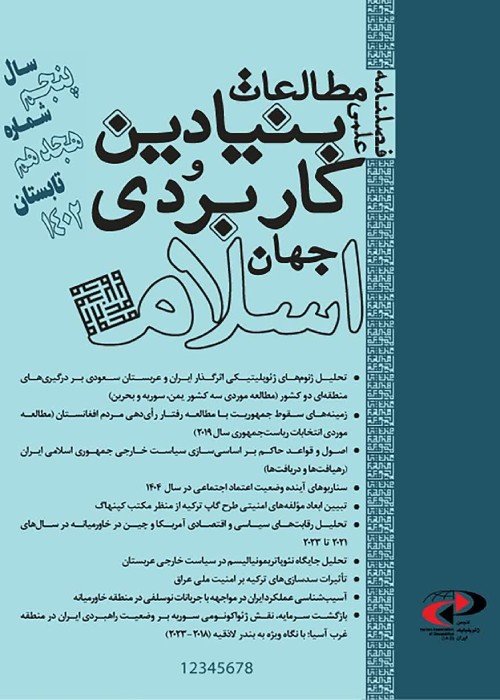Resolving international disputes in the Prophetic tradition
The history of human life has always been one of strife, war and bloodshed from the very beginning. This has caused a lot of financial, psychological and human losses. Establishing peace and resolving conflicts has always been the concern of humanity. This has led many scientists to come up with a number of theories. Some heads of state, government and thinkers speak of peace, a peace in which war, bloodshed and looting are sometimes allowed. But the Prophetic tradition provides important and vital guidelines for resolving wars and conflicts in human societies, which can be followed by managing world societies in the light of peace. In the history of the rule of the Holy Prophet (PBUH), the principle has been based on peaceful relations. Of course, jihad cannot be ignored. Imam Jihad was the only tool at that time to protect Muslims from oppression, defend religion, public order, prevent aggression and injustice. Jihad is a kind of defensive war that has become obligatory on Muslims in certain circumstances. By observing and researching the history of the wars and conflicts of the Holy Prophet (PBUH), we see that all these conflicts have been defensive, such as the battle of Hadd and the battle of Badr. Of course, in Islam, precise rules have been set for war, which in its time was unparalleled in terms of human and humanitarian aspects. Such as prisoners' rights, treatment of the injured and killed, treatment of women, children and the elderly. The rules of war in Islam are based on forgiveness, mercy and compassion. There are various theories in this regard, whether the principle in Islam is war or peace? The Holy Prophet (PBUH) used the method of invitation to resolve political disputes at the beginning of Islam. Which was later achieved through negotiation. And these clashes either led to their conversion to Islam or led to agreements and the signing of contracts. Islam is inevitably in favor of war at times; That is, since the other party is not willing to coexist honorably and seeks to trample on human dignity through oppression and aggression - in such circumstances - surrender is not permissible. The political views of Islam in such cases are: peace if the other side is ready and agrees to peace, and war if the other side wants to fight. And we see both scenes in the history of the political life of the Prophet (peace and blessings of Allaah be upon him). It is also narrated from Imam Ali (as) that he said: “The Prophet sent me to Yemen and said: O Ali! "Do not fight anyone unless you have invited him to Islam." Another method used by the Holy Prophet (pbuh) to resolve disputes was to use common ground. The Prophet (pbuh) used to motivate the opposition to negotiate and agree in principle. They used common ground for peaceful negotiations. The basis of Islam in foreign relations is based on peace. The Prophet (peace and blessings of Allaah be upon him) also used peace-seeking as an important strategy in foreign and international relations. From the sixth year of AH, they also pursued a peace strategy, the most obvious of which was the peace of Hudaybiyyah. One of the methods of resolving the dispute is mentioned in the Holy Quran in verses 59 to 65 of Surah An-Nisa ', which clearly emphasizes the necessity of referring to the ruler of the divine law during the dispute. To refer to God means to refer to the book and the divine ambassadors means the messenger and the first things. Considering the history in Islam and the time of the rule of the Prophet (peace and blessings of Allaah be upon him), it can be said that Islam has established peace and peaceful relations between the Islamic State and other states as a necessary principle and war is only an exceptional case. Is counted. Considering the Prophetic tradition, it became clear that in Islamic law, there are at least some solutions such as: invitation, compromise, negotiation, jizyah, which have been given much attention in order to prevent strife and war between Muslims and non-Muslims.
Islam , International , war , Prophetic Biography , Peace , Quran , conflict
- حق عضویت دریافتی صرف حمایت از نشریات عضو و نگهداری، تکمیل و توسعه مگیران میشود.
- پرداخت حق اشتراک و دانلود مقالات اجازه بازنشر آن در سایر رسانههای چاپی و دیجیتال را به کاربر نمیدهد.


